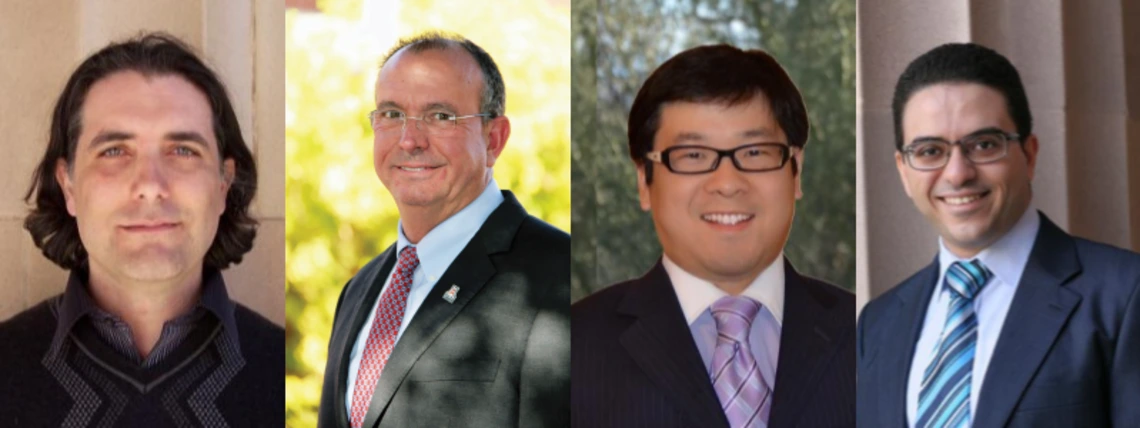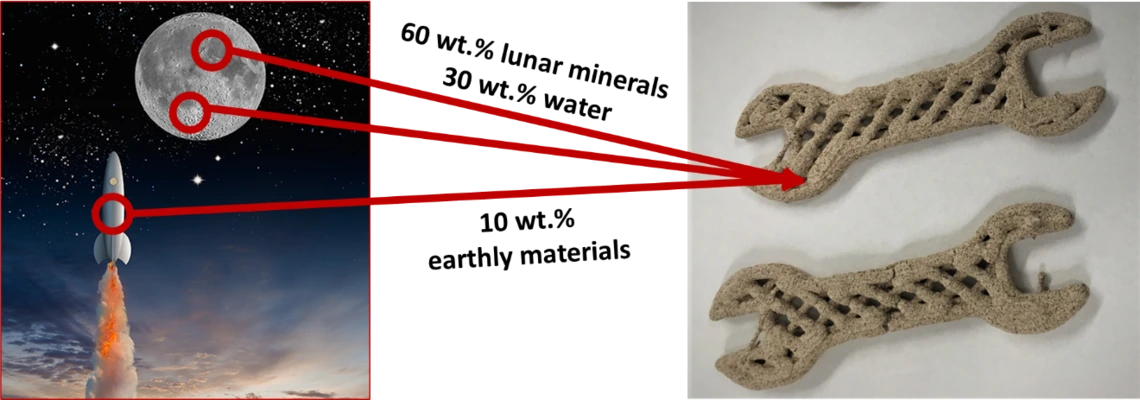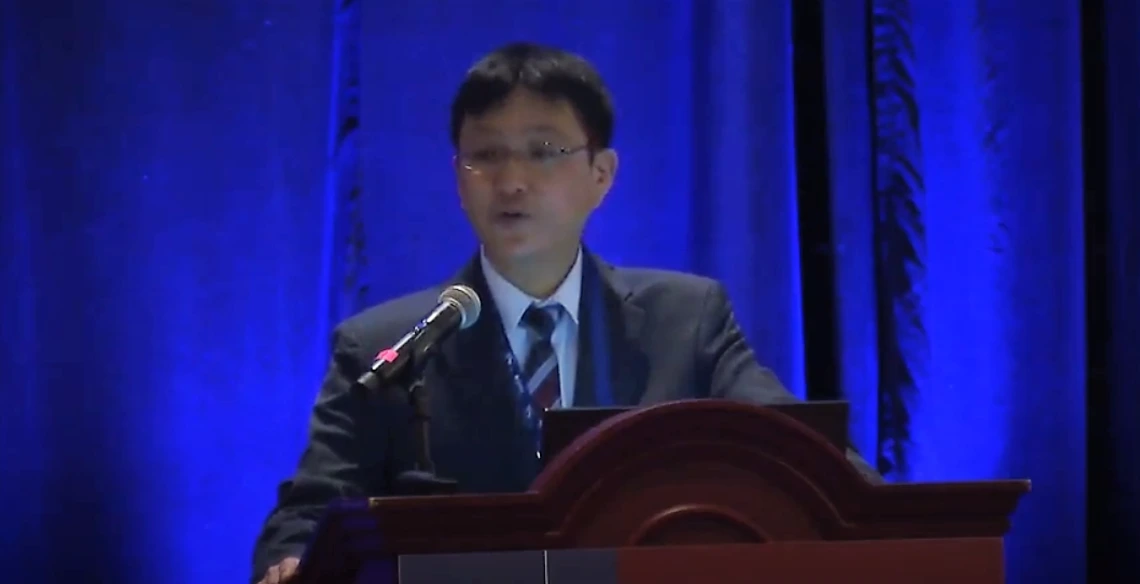Faculty Accomplishments in 2020

SIE faculty have been busy for the last year.
Professor Roberto Furfaro, director of the Space Systems Engineering Laboratory, is part of a team developing an improved water and nutrient delivery system for growing crops in microgravity conditions with limited space. NASA awarded $1.12 million to the University of Arizona and four other investigative teams to tackle the problem. The University of Arizona team is led by Murat Kacira, director of the Controlled Environment Agriculture Center and professor of biosystems engineering, and also includes Phil Sadler, a botanist and innovator responsible for the overall design and fabrication of the Lunar/Mars Greenhouse modules.
Furfaro was also featured on an episode of the Arizona Public Media show Arizona Science, discussing his research into how artificial intelligence and “deep learning” can make automated space exploration vehicles more efficient. Furfaro explained how his former work on the university’s OSIRIS-REx Asteroid Sample Return Mission correlates with developing autonomous space vehicles.
Professor Ricardo Valerdi earned a 2020 Distinguished Faculty Award for his Science of Sport Program, a nonprofit which engages children in STEM through sports. Valerdi was among three engineering faculty who received honors from the Office of the Provost for their excellence in research, teaching and outreach.
When COVID-19 restrictions meant the Science of Sport team couldn’t hold its usual summer camp programs, Valerdi led a pivot to offering online content. Science of Sport offered free webinars on social media, then hosted a series of weeklong virtual camps for middle schoolers. The camps, which included “Mathematics of Baseball,” “Science of Soccer” and “STEM Basketball Camp” were designed to get kids doing math and science while also reducing sedentary screen time and boredom.
Professor Larry Head served as the interim vice provost for Arizona Online from January to June 2020. He also continued research on connected vehicle applications, including the Multi-Modal Intelligent Traffic Signal System. This work was in partnership with the Partners for Advanced Transportation Technology program at the University of California, Berkeley and the Maricopa County Department of Transportation SMARTDrive Program. Head has also been a continuing leader in the new Institute of Automated Mobility, a consortium that brings together experts in automated vehicles from government, industry and all three public Arizona universities.
Associate professor Neng Fan, in collaboration with partners from Stevens Institute of Technology and Portland General Electric, was recently awarded a Department of Energy grant. He will use the funding to develop advanced modeling and optimization approaches to enable cascading hydroelectric systems to provide a suite of enhanced operational flexibilities. He continues providing his expertise in optimization to the Sustainable Bioeconomy for arid Regions Center of Excellence. One of his recently graduated students, José L. Ruiz Duarte, began a position as an assistant professor of marketing and business analytics at San Jose State University this fall.
Assistant professor Mohammed Shafae is working with associate professor Krishna Muralidharan and professor Douglas Loy from the Department of Materials Science and Engineering on a project funded by a Regents' Innovation Fund grant. The team is developing an advanced additive manufacturing technology that will create on-demand parts and components in-situ, using lunar resources. This approach could provide straightforward routes for repair and refurbishment in space. They recently presented their work with a poster at the Lunar Surface Innovation Consortium.

Professor Pavlo A. Krokhmal, in collaboration with professor Sergiy Butenko from Texas A&M University, was awarded an Air Force Office of Scientific Research grant to develop a network analytics toolkit, encompassing both theoretical models and computational algorithms, for analysis of complex, interconnected, heterogeneous networks.
As part of a new National Science Foundation award, associate professor Jian Liu is developing new spatio-temporal analytics for detecting bursts in water distribution system. His collaborators include
SIE PhD student Yinwei Zhang and civil and architectural engineering and engineering mechanics professor Kevin Lansey. The team’s recent conference paper, “Detecting Bursts in Water Distribution System via Penalized Functional Decomposition,” has been selected as a candidate for the best paper award at the 2020 IEEE International Conference on Industrial Engineering and Engineering Management.
Professor Wei Lin is currently working with his PhD student Liang Zhang to develop new interactive control strategies for roadway networks. These strategies are based on data directly from individual vehicles, as opposed to conventional roadway surveillance systems such as loop detectors, microwave or laser sensors. They are also assessing the feasibility of establishing a testbed for implementing those strategies.
Department head Young-Jun Son was the general chair for Winter Simulation Conference 2019, the premier international forum for disseminating recent advances in the field of dynamic systems modeling and simulation. The conference was held in December 2019 in National Harbor, Maryland, and the theme of the conference was “Simulation for Risk Management.” Watch Son’s opening remarks on YouTube.

